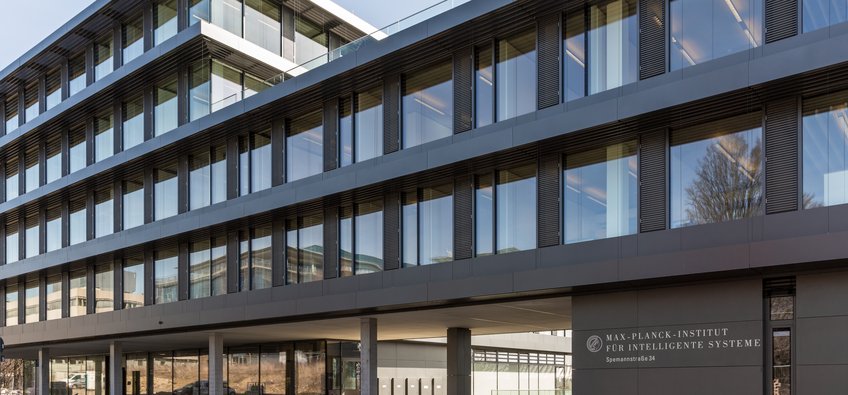
Max Planck Institute for Intelligent Systems, Tübingen site
Intelligent systems can optimise their structure and properties in order to successfully function within a complex, partially changing environment. Three sub-areas – perception, learning and action – can be differentiated here. The scientists at the Max Planck Institute for Intelligent Systems are carrying out basic research and development of intelligent systems in all three sub-areas. Research expertise in the areas of computer science, material science and biology is brought together in one Institute, at two different sites. Machine learning, image recognition, robotics and biological systems will be investigated in Tübingen, while so-called learning material systems, micro- and nanorobitics, as well as self-organisation will be explored in Stuttgart. Although the focus is on basic research, the Institute has a high potential for practical applications in, among other areas, robotics, medical technology, and innovative technologies based on new materials.
Contact
Max-Planck-Ring 472076 Tübingen
Phone: +49 7071 601-1700
PhD opportunities
This institute has an International Max Planck Research School (IMPRS):
IMPRS for Intelligent SystemsIn addition, there is the possibility of individual doctoral research. Please contact the directors or research group leaders at the Institute.







